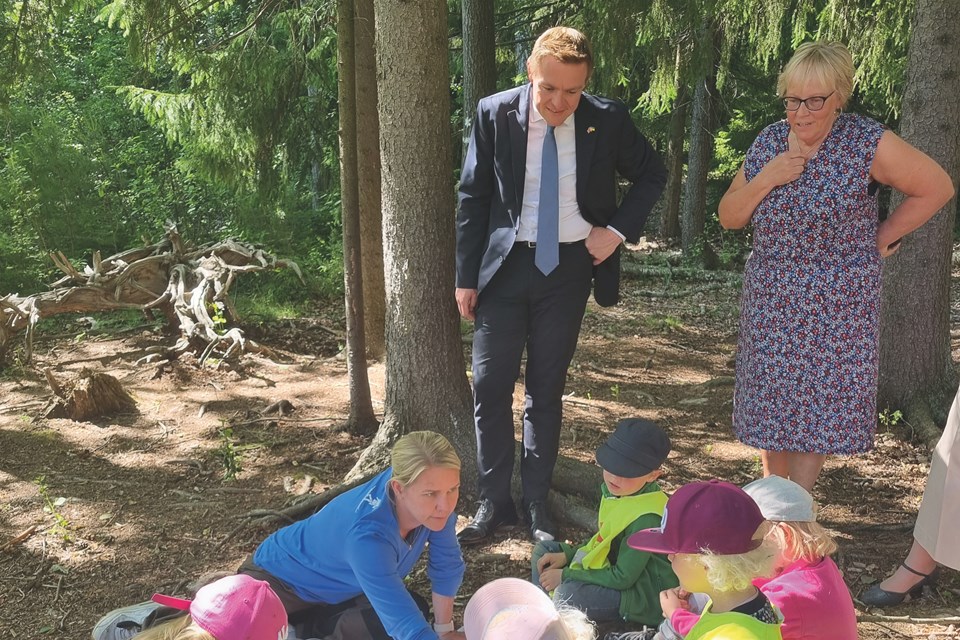Ya think? Duh.You wonder if our home to Lilly played a role?
Colleges
- American Athletic
- Atlantic Coast
- Big 12
- Big East
- Big Ten
- Colonial
- Conference USA
- Independents (FBS)
- Junior College
- Mountain West
- Northeast
- Pac-12
- Patriot League
- Pioneer League
- Southeastern
- Sun Belt
- Army
- Charlotte
- East Carolina
- Florida Atlantic
- Memphis
- Navy
- North Texas
- Rice
- South Florida
- Temple
- Tulane
- Tulsa
- UAB
- UTSA
- Boston College
- California
- Clemson
- Duke
- Florida State
- Georgia Tech
- Louisville
- Miami (FL)
- North Carolina
- North Carolina State
- Pittsburgh
- Southern Methodist
- Stanford
- Syracuse
- Virginia
- Virginia Tech
- Wake Forest
- Arizona
- Arizona State
- Baylor
- Brigham Young
- Cincinnati
- Colorado
- Houston
- Iowa State
- Kansas
- Kansas State
- Oklahoma State
- TCU
- Texas Tech
- UCF
- Utah
- West Virginia
- Illinois
- Indiana
- Iowa
- Maryland
- Michigan
- Michigan State
- Minnesota
- Nebraska
- Northwestern
- Ohio State
- Oregon
- Penn State
- Purdue
- Rutgers
- UCLA
- USC
- Washington
- Wisconsin
High Schools
- Illinois HS Sports
- Indiana HS Sports
- Iowa HS Sports
- Kansas HS Sports
- Michigan HS Sports
- Minnesota HS Sports
- Missouri HS Sports
- Nebraska HS Sports
- Oklahoma HS Sports
- Texas HS Hoops
- Texas HS Sports
- Wisconsin HS Sports
- Cincinnati HS Sports
- Delaware
- Maryland HS Sports
- New Jersey HS Hoops
- New Jersey HS Sports
- NYC HS Hoops
- Ohio HS Sports
- Pennsylvania HS Sports
- Virginia HS Sports
- West Virginia HS Sports
ADVERTISEMENT
You are using an out of date browser. It may not display this or other websites correctly.
You should upgrade or use an alternative browser.
You should upgrade or use an alternative browser.
Question for Democrats/those left of center: what do you want if the Dems sweep in 2024?
- Thread starter BradStevens
- Start date
Can't be, states are immune to corruption, only DC has the problem.Ya think? Duh.
Lily is the problem…run them out of townCan't be, states are immune to corruption, only DC has the problem.
Even Rx drugs, once off patent, are supposed to be priced competitively due to generic competition. Patent runs out, price drops in half or even less. Insulin hasn't gone that way. Partly because there are few manufacturers, secondly because those in the business are undoubtedly colluding on pricing.
Yep. Get rid of it. Or at least lift it.Start with removing the cap on taxable earnings

One way to fix Social Security? "Smash the cap"
Eliminating or lifting the tax cap would help stabilize Social Security, while also being fairer to most Americans, experts say.
The system is ****ed. PBMs etc. maybe Cuban will create a new model that takes offEven Rx drugs, once off patent, are supposed to be priced competitively due to generic competition. Patent runs out, price drops in half or even less. Insulin hasn't gone that way. Partly because there are few manufacturers, secondly because those in the business are undoubtedly colluding on pricing.
universal pre-K subsidies for the states to move towards a universal pre-K system
What does something like this actually look like? Are there studies showing that this is impactful?
What does something like this actually look like? Are there studies showing that this is impactful?

Top Five Benefits of Early Childhood Education
Top Five Benefits of Children’s brains develop faster from birth to age 5 than any other time in their lives. In fact, 90% of brain development…
What system would I like to see the U.S. work towards? Something like Swedens, although I realize that's not very palatable for a lot of people. The spend 1.6% of GDP on early childhood education/daycare:

Early education in Sweden – No comparison
Should the former childcare minister have gone on a fact-finding mission to Sweden in his quest to lower childcare costs? No, for several reasons, says Professor Peter Moss
That said, I think this would combat a lot of problems in the USA, from racial educational and economic disparities, to underperforming education results, to encouraging higher birthrates, to combatting abused children and finding early entries into the mental health care system for disturbed kids.
Last edited:
What does something like this actually look like? Are there studies showing that this is impactful?
Let's not kid ourselves, this is free babysitting dressed up as education.
Absolutely. But it takes a village to raise a child (and to remove all obstacles to working age people, you know, working).Let's not kid ourselves, this is free babysitting dressed up as education.
Disagree. Early childhood development is way more important than just "babysitting." All the studies show this.Let's not kid ourselves, this is free babysitting dressed up as education.
I wish I could post the size of the bite on my minion’s back from yesterday. It’s definitely a benefit but don’t get it mixed. It’s midget warfare on the dailyDisagree. Early childhood development is way more important than just "babysitting." All the studies show this.
I wish I could post the size of the bite on my minion’s back from yesterday. It’s definitely a benefit but don’t get it mixed. It’s midget warfare on the daily

Are you arming him properly for this war?I wish I could post the size of the bite on my minion’s back from yesterday. It’s definitely a benefit but don’t get it mixed. It’s midget warfare on the daily

I have a feeling he'd sweep the leg.Murts kid had the ultimate weapon at his disposal

Disagree. Early childhood development is way more important than just "babysitting." All the studies show this.
The variability in quality is immense, so I could see some logic behind trying to "standardize" the quality. But, the question would be - do we trust governmental involvement to control the quality, teacher profiles, etc.? It sounds damn near impossible, having been through and still going through daycare.
I have a feeling he'd sweep the leg.
Johnny lost the fight though.
It’s so great when I pick him up. Blood dripping. Head over my shoulder waving yelling “BYE FWENDS!! SEE YA MORROW””
I get it. For the size of this problem, though, I don't see how to keep government out.The variability in quality is immense, so I could see some logic behind trying to "standardize" the quality. But, the question would be - do we trust governmental involvement to control the quality, teacher profiles, etc.? It sounds damn near impossible, having been through and still going through daycare.
Although, to your point re daycare now, read that article about Sweden. The author takes issue with the daycare moniker--says to really transform things, you have to think of, staff, and spend differently. It would certainly be expensive.
Basically, we would be attempting to standardize early childhood development for 10 hours a day. For some, that might not work as well as the current system (this wouldn't be mandatory, though). But for many, many children, this would be a big improvement over what they have now. Hell, even the bad daycare worker you are thinking about now would be a vast improvement (when also including the setting) over what some of these little kids face every day at home.
I get it. For the size of this problem, though, I don't see how to keep government out.
Although, to your point re daycare now, read that article about Sweden. The author takes issue with the daycare moniker--says to really transform things, you have to think of, staff, and spend differently. It would certainly be expensive.
Basically, we would be attempting to standardize early childhood development for 10 hours a day. For some, that might not work as well as the current system (this wouldn't be mandatory, though). But for many, many children, this would be a big improvement over what they have now. Hell, even the bad daycare worker you are thinking about now would be a vast improvement (when also including the setting) over what some of these little kids face every day at home.
I see a quote from Yellen today that it is still too hard to be a working parent in America. I think that is very accurate though it no longer applies to me.
The local schools are creating a Pre-K system and they are certifying local daycares to be the providers. Basically money from the recent referendum will fund this. I don't know if I like it or not, won't know until we see if it works. But it is worth trying to get data. That would seem to solve Jamie's concern's about it being the government, it isn't, it is private pre-K. They just have to meet the standards the same a charter school has to meet standards.
I get it. For the size of this problem, though, I don't see how to keep government out.
Although, to your point re daycare now, read that article about Sweden. The author takes issue with the daycare moniker--says to really transform things, you have to think of, staff, and spend differently. It would certainly be expensive.
Basically, we would be attempting to standardize early childhood development for 10 hours a day. For some, that might not work as well as the current system (this wouldn't be mandatory, though). But for many, many children, this would be a big improvement over what they have now. Hell, even the bad daycare worker you are thinking about now would be a vast improvement (when also including the setting) over what some of these little kids face every day at home.
I agree with some of that, particularly around providing opportunities to kids that otherwise don't have them and I do think you'd see some rise. As importantly, the idea of bringing in certain educational concepts so that kids are learning their ABCs, numbers, colors, shapes, etc. at the proper age, is appealing and in theory, would benefit society. I also agree that, generally, having kids in daycare/preschool is important for long-term societal inclusion and the burden is out of control (I've stated before that we pay $25K/yr per kid and we aren't even at the fanciest centers in the area which were upwards of $32K in 2015 when I was first exploring this).
My concerns would be around the pragmatism of implementing such a difficult program and maintaining consistency. That would be particularly difficult if you look at the various types of early education curriculums out there (e.g., Montessori, Creative, etc.). There is never going to be unanimity around what program and learning style works best, let alone the number of hours and routines for each center.
Living in an affluent (relatively speaking) area, I find it interesting how many women (to be fair, at times I would prefer my wife was willing to) still stay at home (there are probably a couple of dads that do as well, but none that I know of). I often wonder what kind of impact less socialization and structure on long-term social skills, psychology and other factors. It's obviously kid dependent and genetics play a role, but if there are kids that struggle socially despite parents that purposefully stay at home, have financial means to do interactive things, care a ton about their kids, etc., it really makes you feel for the kids without those circumstances.
I see a quote from Yellen today that it is still too hard to be a working parent in America. I think that is very accurate though it no longer applies to me.
Perhaps things like universal healthcare would actually lower daycare costs b/c many of them aren't set up in a way to get the best health insurance, particularly because I would imagine teachers are serial users, even if they are younger and healthier.
I just don't trust the government to effectively handle such large initiatives because I have yet to see recent examples where it has successfully done so (e.g., Postal Service, SS, etc.) with efficiency and accuracy.
I'd think it is less about the particular curriculums, and more about 10 hours of attention, focus and stimulation, play time, etc. I'd leave it to the states to figure out specifics, let them experiment and craft what works for their populations, but have general federal guidelines re standards, worker quality, etc.I agree with some of that, particularly around providing opportunities to kids that otherwise don't have them and I do think you'd see some rise. As importantly, the idea of bringing in certain educational concepts so that kids are learning their ABCs, numbers, colors, shapes, etc. at the proper age, is appealing and in theory, would benefit society. I also agree that, generally, having kids in daycare/preschool is important for long-term societal inclusion and the burden is out of control (I've stated before that we pay $25K/yr per kid and we aren't even at the fanciest centers in the area which were upwards of $32K in 2015 when I was first exploring this).
My concerns would be around the pragmatism of implementing such a difficult program and maintaining consistency. That would be particularly difficult if you look at the various types of early education curriculums out there (e.g., Montessori, Creative, etc.). There is never going to be unanimity around what program and learning style works best, let alone the number of hours and routines for each center.
Living in an affluent (relatively speaking) area, I find it interesting how many women (to be fair, at times I would prefer my wife was willing to) still stay at home (there are probably a couple of dads that do as well, but none that I know of). I often wonder what kind of impact less socialization and structure on long-term social skills, psychology and other factors. It's obviously kid dependent and genetics play a role, but if there are kids that struggle socially despite parents that purposefully stay at home, have financial means to do interactive things, care a ton about their kids, etc., it really makes you feel for the kids without those circumstances.
Armed forces?Perhaps things like universal healthcare would actually lower daycare costs b/c many of them aren't set up in a way to get the best health insurance, particularly because I would imagine teachers are serial users, even if they are younger and healthier.
I just don't trust the government to effectively handle such large initiatives because I have yet to see recent examples where it has successfully done so (e.g., Postal Service, SS, etc.) with efficiency and accuracy.
Similar threads
- Replies
- 203
- Views
- 4K
- Replies
- 8
- Views
- 753
- Replies
- 24
- Views
- 2K
- Replies
- 27
- Views
- 802
ADVERTISEMENT
Latest posts
-
-
How do transgender women (biological men) live with themselves . . .
- Latest: mattndallas
-
-
-
ADVERTISEMENT